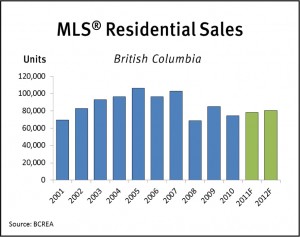Scrapped B.C. HST Will Mean Consumer Savings
This article appeared on CBC.ca on August 26th, 2011.
B.C. families can expect to save hundreds of dollars a year once the province returns to the PST and GST system, which the provincial government Friday said would be completed by March 2013.
An independent panel appointed by the government reported in May that families earning between $40,000 and $60,000 a year would pay about $350 more annually in sales taxes due to the HST.
That amount rose to more than $1,000 a year extra for individuals or families making more than $100,000.
“There is a slight benefit to consumers under the old PST system compared to the HST,” said Helmut Pastrick, chief economist for the Central Credit Union.
Pastrick said some people may want to wait to purchase certain items until the old tax system is restored.
“For those planning on purchasing those big ticket items such as a vehicle or house, then it might be worthwhile to wait as there might be some savings,” he said.
One of the biggest objections to the HST — which combined the five-per-cent GST and the seven-per-cent PST — was its application to many items that previously had not been taxed.
After the announcement Friday that the HST had been rejected in the provincewide referendum, both Premier Christy Clark and Finance Minister Kevin Falcon promised that all the product and service sales tax exemptions that existed before the HST would be reinstated.
Range of consumer items:
Some of the items that consumers can expect — in 18 months — to once again be PST-exempt include:
New homes over $525,000.
Real estate fees.
Moving services.
Home renovations and landscaping.
Purchase or lease of a fuel efficient vehicle.
Restaurant meals and snack foods.
Domestic flights, coach bus, rail and taxi.
Sporting events, movie tickets, gym memberships, concerts, camping sites
Beauty salon services.
Over-the-counter medications.
School supplies.
Wedding expenses.
Telephone and TV service.
Critics of the PST point out that there may not be any real long-term savings under the PST system, because it will provide less government revenue and lead to an increased provincial deficit, which theoretically will have to be paid for eventually with tax dollars.

